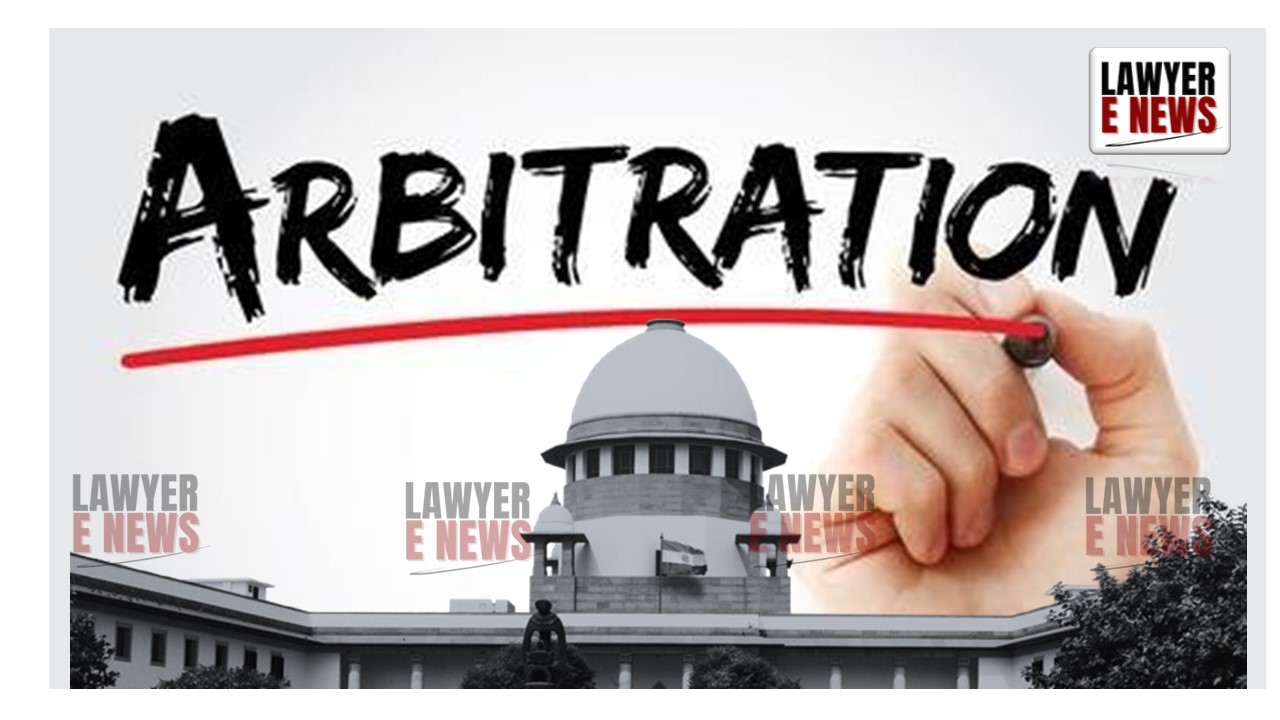-
by sayum
17 February 2026 8:32 AM



“Whether Full and Final Discharge Was Voluntary or Due to Economic Duress Is a Matter for Arbitral Tribunal to Decide”, In a significant ruling Supreme Court of India held that the existence of a discharge voucher or a settlement signed under alleged financial pressure does not extinguish an arbitration clause in the underlying contract. The Court set aside a 2011 Bombay High Court order that had refused to appoint an arbitrator under Section 11(6) of the Arbitration and Conciliation Act, 1996, and held that the claim of economic duress raised by the insured must be evaluated by the arbitral tribunal, not by the court at the referral stage.
Justice Abhay S. Oka and Justice Ujjal Bhuyan ruled, “The question as to whether the appellant was compelled to sign the standardized voucher/advance receipt out of economic duress… is clearly within the domain of the arbitral tribunal.”
Arabian Exports Pvt. Ltd., engaged in meat exports, had taken two fire insurance policies from National Insurance Co. Ltd. for its processing and cold storage unit in Taloja, Maharashtra. On July 26, 2005, unprecedented rainfall caused severe flooding of the factory, resulting in significant damage to infrastructure and perishable stock. The total claim raised by the company was Rs. 5.71 crores.
Despite multiple reminders, the insurer delayed settlement. Eventually, in December 2008, the company was handed a standardized discharge voucher for a much lower amount of Rs. 1.88 crores, which the appellant signed under protest, citing mounting financial strain and creditor pressure. On December 24, 2008, the company notified the insurer that the acceptance was under economic duress and invoked the arbitration clause in the insurance policy to recover the remaining Rs. 3.83 crores.
However, the insurer rejected arbitration, claiming that the dispute was settled. Consequently, the appellant filed applications under Section 11 of the Arbitration Act, which were dismissed by the Bombay High Court on the ground that there was a full and final settlement.
“Signing of Full and Final Settlement Does Not Bar Arbitration When Duress or Coercion Is Alleged”
The central legal issue was whether execution of a full and final settlement voucher bars a party from invoking arbitration when there is a claim of coercion, undue influence, or economic duress.
Rejecting the High Court’s approach, the Supreme Court held: “If the court were to minutely examine the plea and judge its credibility at the Section 11 stage, there would be a danger of denying a forum to the applicant altogether… This Court upheld the concept of economic duress.”
Citing its judgment in Dicitex Furnishing Ltd. and the doctrinal guidance from Boghara Polyfab Pvt. Ltd., the Court reiterated that such disputes must be referred to arbitration unless the court finds a clear case of deadwood: “At the stage of Section 11(6), the court is only required to ensure that an arbitrable dispute exists. It has to be prima facie convinced about the genuineness or credibility of the plea of coercion.”
“Arbitration Agreement Survives Accord and Satisfaction Unless Expressly Extinguished”
The Court relied on its judgment in SBI General Insurance Co. Ltd. v. Krish Spinning, where it had held: “Discharge of obligations under the substantive contract cannot be construed to mean that the parties also intended to relieve each other of their obligation to settle disputes through arbitration.”
Even where the contract was discharged by settlement, unless parties expressly agreed to terminate the arbitration clause, it continues to survive.
“Full and Final Voucher Executed Under Economic Strain Does Not Bar Reference to Arbitration”
The Court noted that the voucher was undated, standardized, and issued years after the original claim. The appellant, in its communication dated December 24, 2008, stated: “Looking to the financial strain cast on us by virtue of the willful delay on the part of your organization in settlement of our claims coupled with the pressure exerted by our bankers and creditors, we were left with no option but to sign and submit to you the said undated and standardized voucher…”
Referring to this and similar facts from Dicitex and Aslam Ismail Khan Deshmukh, the Court said: “Even after receipt of Rs. 1.88 crores against the claim of Rs. 5.71 crores, whether arbitration survives is a matter to be determined by the arbitral tribunal.”
“Doctrine of Kompetenz-Kompetenz Applies — Arbitral Tribunal to Decide on Its Own Jurisdiction”
Reiterating the doctrine that arbitral tribunals have jurisdiction to rule on their own jurisdiction, the Court reinforced the legislative mandate under Section 16 of the 1996 Act and the global arbitration trend of minimal judicial intervention: “The doctrine of Kompetenz-Kompetenz is now firmly embedded in the arbitration jurisprudence in India. The object is to minimize judicial intervention.”
The Supreme Court held that the High Court had erred in rejecting the Section 11(6) application merely because of the insurer's assertion of full and final settlement. It reiterated that courts must adopt a prima facie standard, and questions like economic duress must be examined during the arbitral proceedings, not at the referral stage.
Accordingly, the Court allowed the appeals, set aside the High Court’s order, and appointed Justice (Retd.) Suresh Chandrakant Gupte as the sole arbitrator. The parties were directed to appear before the arbitrator by May 15, 2025.
“Whether the appellant was compelled to sign the voucher/receipt and whether the arbitration clause survives must be left to the arbitrator.”
Date of Decision: May 6, 2025
